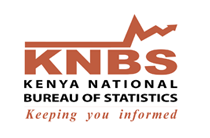 The Leading Economic Indicators for the month of March 2015 highlights trends in Consumer Price Indices (CPI) and inflation, interest rates, exchange rates, international trade, agriculture, energy, manufacturing, building and construction, tourism and transport.
The Leading Economic Indicators for the month of March 2015 highlights trends in Consumer Price Indices (CPI) and inflation, interest rates, exchange rates, international trade, agriculture, energy, manufacturing, building and construction, tourism and transport.
Consumer Price Index (CPI) increased from 154.14 points in February 2015 to 155.86 points in March 2015. The overall rate of inflation expanded from 5.61 per cent to 6.31 per cent during the same period. In March 2015, the Kenyan Shilling depreciated against the US dollar, the Japanese Yen and the Ugandan shilling while appreciating against the other major currencies. However, the Kenyan shilling maintained the same exchange rate during the review period.
The average yield rate for the 91-day Treasury bills, which is a benchmark for the general trend of interest rates, declined to 8.49 per cent in March 2015. The inter-bank rates fell to 6.84 per cent during the period.
The Nairobi Securities Exchange 20 share index decreased from 5,491 points in February 2015 to 5,346 points in March 2015, while the total number of shares traded increased from 593 million to 614 million shares during the same period. The total value of NSE shares traded expanded from KSh 16.11 billion to KSh 20.52 billion over the same period. Broad money supply (M3), a key indicator for monetary policy formulation expanded from KSh 2,407.83 billion in February 2015 to KSh 2,398.76 billion in March 2015. Gross Foreign Exchange Reserves increased from KSh 890.55 billion in January 2015 to KSh 910.92 billion in February 2015. Net Foreign Exchange Reserves went up from KSh 474.00 billion to KSh 488.50 billion over the same period. Download Leading Economic Indicators March 2015
 Kenya National Bureau of Statistics hereby releases Consumer Price Indices (CPI) and inflation rates for May, 2015. These numbers have been generated using data collected during the second and third weeks of the month under review. The prices were obtained from selected retail outlets in 25 data collection zones located in Nairobi and 13 other urban centers.
Kenya National Bureau of Statistics hereby releases Consumer Price Indices (CPI) and inflation rates for May, 2015. These numbers have been generated using data collected during the second and third weeks of the month under review. The prices were obtained from selected retail outlets in 25 data collection zones located in Nairobi and 13 other urban centers.
 The overall objective purpose of Foreign Investment Survey (FIS) is to collect information from resident enterprises on their foreign assets and liabilities, and investor perceptions on the business environment;
The overall objective purpose of Foreign Investment Survey (FIS) is to collect information from resident enterprises on their foreign assets and liabilities, and investor perceptions on the business environment; The Leading Economic Indicators for the month of March 2015 highlights trends in Consumer Price Indices (CPI) and inflation, interest rates, exchange rates, international trade, agriculture, energy, manufacturing, building and construction, tourism and transport.
The Leading Economic Indicators for the month of March 2015 highlights trends in Consumer Price Indices (CPI) and inflation, interest rates, exchange rates, international trade, agriculture, energy, manufacturing, building and construction, tourism and transport.